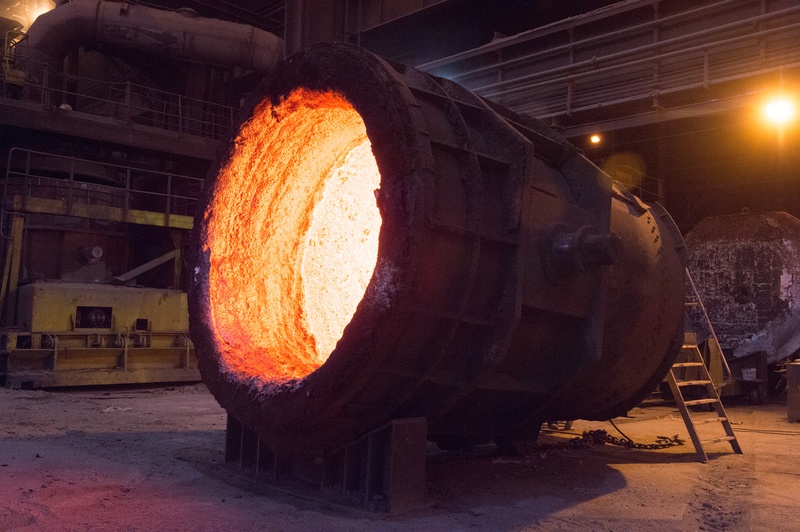Materials Processing Institute
Materials Processing Institute launches three year hydrogen research agreement with Trent Refractories and Kanthal
The Materials Processing Institute has announced a progressive research partnership with Trent Refractories and Kanthal to examine the potential impact on industrial processes of using hydrogen as an alternative fuel source.
The three year research agreement will focus on the effect of hydrogen on refractories, the heat resistant materials that form the linings for high-temperature furnaces, crucibles, ladles, and kilns - primarily used in the iron and steel industry.
It will also test a range of electrical elements, for use in high temperature applications to discover any advances that need to be made to ensure full operating demands are fulfilled under an aggressive hydrogen atmosphere.
The initial phase will involve the testing of refractory materials supplied by Scunthorpe-headquartered Trent Refractories to mitigate any degradation caused by hydrogen.
Samples will undergo a complex and advanced range of testing at the Institute in hydrogen-rich atmospheres, including microscopy and porosity tests.
Swedish industrial heating technology company Kanthal is seeking to advance the use of electric furnaces and green steel. Combined with advances in hydrogen production process, their widespread adoption is set to transform the global steel industry over the next two decades.
The Materials Processing Institute will also test a series of electrical elements designed by Kanthal that can tolerate hydrogen’s high heating values at its state-of-the-art hydrogen research facilities. It will further investigate and test new materials to ensure they are industry ready as clean hydrogen is further introduced across many industrial processes over the next few years.
Chris McDonald, CEO of the Material Processing Institute, a UK centre for research and innovation in the foundation industries, said: “The results of this collaborative research programme could have far-reaching effects given the range of industries that depend on refractory solutions, including iron and steel, aluminium, glass, power generation, petrochemicals and chemicals, and cement.
“Hydrogen is widely used here at the Institute, and it is crucial that we assess how it is used to help deliver long term solutions that shape and support the UK’s transition to a low carbon economy.”
Bob James, Technical Collaboration Lead at the Institute, added: “It’s already proven that hydrogen is an alternative clean fuel source capable of powering the majority of industrial processes. However, research is essential to assess how hydrogen may impact on the processes themselves, including its effect on refractory lining systems, the corrosion of certain compositions, and accelerated wear.”
Katy Moss, Managing Director of Trent Refractories Ltd and the President of the Institute of Refractory Engineers, said: “We are very much looking forward to working with such dynamic partners. It means a lot to the team here at Trent Refractories, to be part of the solutions that enable our foundation industries not only to survive but to sustainably thrive.”
Jesper Ejenstam, R&D Manager of Kanthal, added: “Industry is entering a new age of decarbonisation with a mass shift towards electrification and the use of clean fuels such as hydrogen. Kanthal is proud to be part of the research that will ensure such innovations are industry ready.”
ISSUED ON BEHALF OF MATERIALS PROCESSING INSTITUTE
MEDIA CONTACT: Andrew Douglas 01325 363 436
Photo caption: The research will examine the effect of hydrogen on heat resistant materials that form the linings of furnaces, crucibles, kilns and ladles
Notes to editors:
Materials Processing Institute
The Materials Processing Institute is a research and innovation centre serving global steel and materials organisations that work in advanced materials, industrial decarbonisation, the circular economy, and digital technologies.
The Institute has served as the UK’s national steel innovation centre since 1944 having been set up by Sir Winston Churchill’s wartime government just before D-Day to equip the British steel industry for post-war reconstruction. It will celebrate its 80th anniversary in 2024.
Through collaboration with its customers, the Institute provides a range of technology and R&D based services and consultancy. It also has pilot and demonstration facilities and an SME Technology Centre to support supply chain businesses with the development of new technologies and products.
Works with: steel, metals and alloys, chemical processes, aerospace and defence, energy, mining and quarrying, construction, rail, transport, and infrastructure, offshore, subsea, and nuclear.
The Materials Processing Institute includes developments funded through Tees Valley Combined Authority, through the Local Growth Fund (Growth Deal).
Trent Refractories Limited
Trent Refractories are a UK based manufacturer and supplier of bespoke refractory solutions, supplying the UK market and beyond. It enjoys a reputation for innovative product development, competitively priced high quality products, and an ability to offer quick turn-around times tailored to customers’ demands.
Founded in 1989, Trent Refractories has a strong British industrial heritage. Two generations on, the company is still owned and managed by the same family who have been joined over the years by a knowledgeable and experienced team. Quality and excellence is its hallmark.
It takes pride in its products and offers bespoke casting to any design. Exporting globally, to a wide range of companies.
https://www.trentrefractories.com/
Kanthal
Kanthal was built on the innovative Kanthal® FeCrAl alloy that changed how electric heating could be used. It has continued a path of innovation for more than 90 years, developing new and game-changing materials and solutions for heating.
Kanthal’s heritage dates to 1931 when it was founded by engineer Hans von Kantzow in the Swedish town of Hallstahammar, where it continues to have its headquarters.
back to Materials Processing Institute
Images

